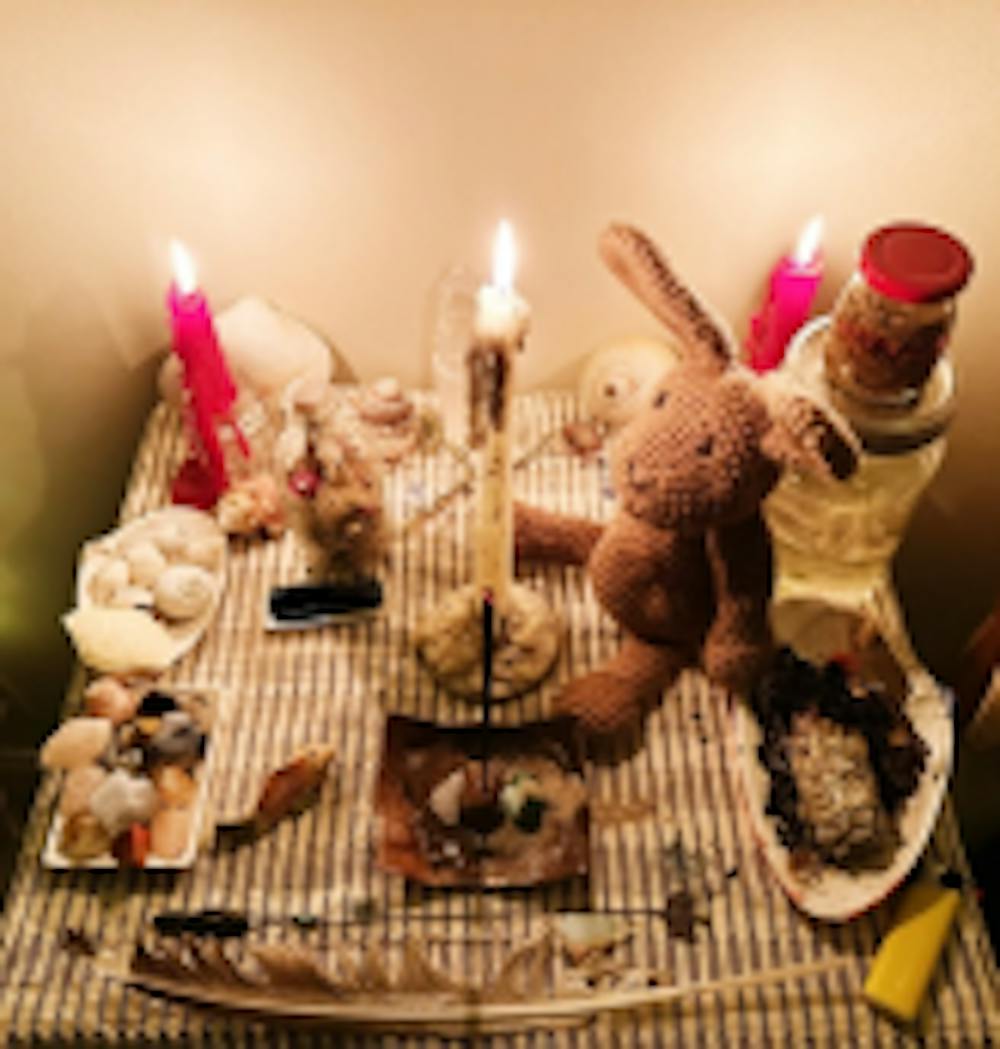Coven @ AU encourages individuals to discover their own powerful identity in a diverse space dedicated to magical practices. This new community fosters self-discovery.
While the word ‘witch’ is often misunderstood, one senior at American University is embracing the magic. Coven @ AU, a new student group, reclaims the power of witches by providing a place for education, empowerment and communion with the universe for all students, faculty and staff.
The coven’s founder, Caroline Routh, a senior in the School of International Service, started seeing a tarot card reader and practicing the craft a year ago in hopes of finding guidance. A coven typically describes a gathering or community of witches, practitioners of Wicca or other forms of modern pagan and magical traditions. Coven members work together to celebrate the cycles of nature, perform rituals related to the phases of the moon and engage in magical practices. But Routh said she had trouble finding any covens in the greater D.C. area.
“Don’t have a space? Make your own,” Routh said.
Routh understands that some might be hesitant because the word ‘witch’ evokes the image of women with pointy black hats and boiled noses. But, according to Routh, the witch stands in opposition to patriarchal control and injustice. She explained that witchcraft enables people to reclaim their sense of autonomy, power and control over their bodies through the power of community and practice.
Another witch on campus, Gwendolyn Reece, the high priestess of The Assembly of the Sacred Wheel and an associate librarian at AU, said that these spaces are incredibly important.
“We are trying to develop the rarefied essence of a living being,” Reece said. “We are a community in pursuit of arete.” Arete, a Greek word, translates to virtue and excellence. Together, members of covens can help one another live a divine life.
Coven @ AU aims to do this with full moon circles, altar making, magic jars, honoring the Sabbats of the Wheel of the Year and more.
But the coven’s education and practices would not be fulfilled without promoting Indigenous and folk magical practices for members who identify accordingly. In other words, not just for aesthetics or the consumption of more products. “No you don’t need to pay $100 on that janky piece of rose quartz to make you a stronger witch,” Routh says. “The consumerism makes people believe that only the wealthy deserve access to witchcraft but in reality witches come from every single background on Earth.”
Witchcraft is more than just what social media would have you believe, Routh said. She added that historically and culturally, witchcraft is a deeply nuanced topic containing diverse beliefs, practices and interpretations. Routh, who has Indigenous heritage, stressed the importance that everyone feels comfortable practicing the way they wish.
“There are 101 different ways to practice and a lot of those have to do with cultural practices,” Routh said. By establishing a venue for all practitioners to exchange knowledge, Routh said she hopes to put an end to appropriation in the witch community and support self-exploration.
People across the United States are drawn to the craft as a way of reclaiming control over their identities and bodies, Reece explained.
“If you’re denied formal power in your society, magic is one of the places that you still have it,” Reece said.
According to Helen Berger, author of “Solitary Pagans: Contemporary Witches, Wiccans, and Others Who Practice Alone,” interest in spirituality tends to rise during times of upheaval. Witches have traditionally been associated with women’s issues, which are currently front and center in the political sphere. So, in the broader context of the world, the craft is attracting people as a method of protest against oppressive forces. According to Reece, “This is what you do if you were denied other access to recourse.”
Within the college community, witchcraft can provide guidance in a transitional period of life. But no experience is needed to participate. “There’s no better place to learn about something than a college campus,” Routh said.
Editor's Note: This article was written by a contributor to The Eagle and The Eagle was not made aware that the author was a member of The Coven @ AU until after publication.
This article was edited by Maria Tedesco, Patricia McGee, Hannah Langenfeld, Zoe Bell and Abigail Pritchard. Copy editing done by Isabelle Kravis and Charlie Mennuti.
life@theeagleonline.com





